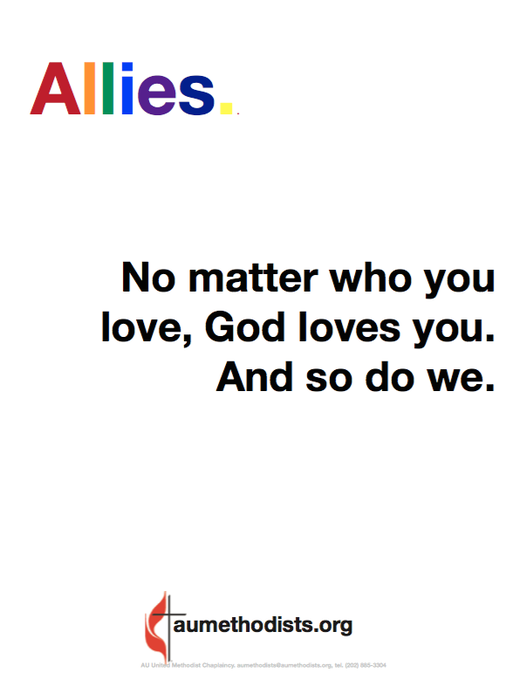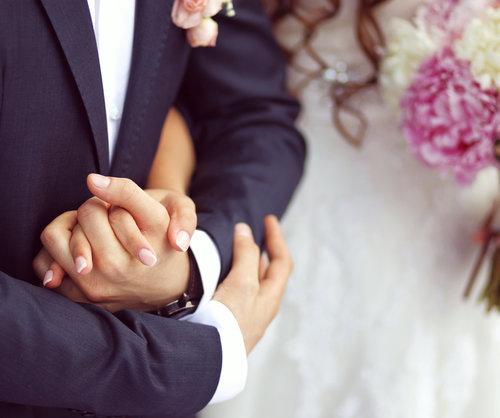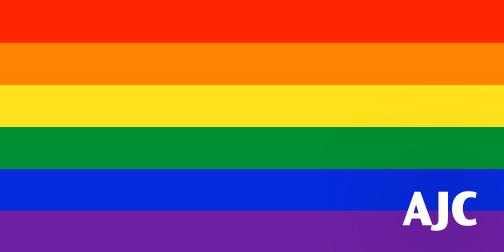SIGN THE PETITION
There are seven Noahide Laws, and one of them forbids unapproved sexual relationships, including adultery (here) and homosexuality (here). According to many Rabbis, because Noahide Law applies to all non-Jews, they are forbidden from accepting homosexuality, and the punishment for doing so would be death.
DIRECT QUOTE
Shafran argues that according to his faith, not only Jews, but all of humankind is forbidden from same-sex marriage. “In fact, few moral precepts are as deeply rooted in the Torah as the one forbidding Jews -– and non-Jews as well, since it is part of the Seven Noahide Commandments governing all humankind -– from engaging in homosexual behavior,” he wrote.
FULL TEXT
Where America's biggest religions stand on same-sex marriage
BY JESSICA EGGERT
JUL 04, 2015
The Supreme Court's historical 5-4 ruling last week that made same-sex marriage the law of the land was celebrated as a giant victory for the LGBT community, which for years has pushed for the equal right to be married to someone who you love.
Now that the initial wave of celebration has died down, it’s clear that the decision to legalize same-sex marriage in all 50 states does not mark the end of the debate. For religious groups, the new law remains particularly controversial.
Some religions openly celebrated the decision. Others, who believe that marriage should be between a man and a woman, have voiced their disapproval. Some are already trying to find loopholes around the law.
A recent study by Pew Research Center shows that eight large religious institutions, including the Roman Catholic Church, the Orthodox Jewish Movement, the Church of Jesus Christ of Latter Day Saints and Islam, formally oppose same-sex marriage.
Other religious groups, such as the Conservative and Reformed Jewish Movement and the United Church of Christ have, in recent years, moved to allow same-sex marriage.
Episcopalians, which elected the first openly gay bishop more than a decade prior, voted to allow religious weddings for same-sex couples Wednesday.
Below, we track where the major religions stand on the topic.
Evangelical Protestant
According to a recent study by Pew Research Center, only 27% of white Evangelists in the U.S. support same-sex marriage.
While a majority of Evangelical churches prohibit same-sex marriage, in 2009, the Evangelical Lutheran Church of America voted to allow the congregation’s minister to decide whether or not to marry same-sex couples.
The Lutheran Church-Missouri Synod, however, did not approve. In a statement released on their website in 2010, the church wrote that it prays "for her brothers and sisters in the ELCA, including those who have departed from this biblical and Christian understanding” and asks “that the ELCA would reconsider—even now—its actions.”
As for 2016, consider this: Governor of Louisiana Bobby Jindal, a candidate in the 2016 elections and an Evangelical Christian, tweeted his statement in response to the SCOTUS decision:
Marriage between a man and a woman was established by God, and no earthly court can alter that. bobbyjindal.com/governor-jinda…
Mainline Protestant
This March, the Presbyterian Church (U.S.A), the largest Presbyterian denomination, officially endorsed same-sex marriage and added it to their church’s constitution.
The decision came after three decades of debate, according to the New York Times, as the church joins the United Church of Christ, another denomination associated with Mainline Protestant, that also sanctions same-sex marriage.
Data from the Pew Research Center shows that some other religious groups associated with Mainline Protestant, including the United Methodist Church and the American Baptist Churches USA, are still against same-sex marriage.
The United Methodist Church, for instance, rejected a petition to adjust their Book of Discipline to allow same-sex marriage at their last General Conference in 2012.
In a report from Seattle PI following the conference, Pastor Sanford Brown estimated that 30% of the newcomers at his church were gay.
"First Churchers are hurting because last week’s General Conference suggested we’re stuck in a Pope Benedict-slash-Rick Santorum-slash-Southern Baptist-slash-Rush Limbaugh church of closeted gays and sanctimonious straights," Brown, who has a doctorate from Princeton Theological Seminary, wrote.
That younger generation might be the ones who finally shift the needle: United Methodist's campus ministry at American University tweeted in support of same-sex marriage on the same day of the decision.
Catholicism
The Roman Catholic Church formally prohibits same-sex marriage.
A Pew Research Study conducted last month about the changing views of same-sex marriage, however, shows that 56% of Catholics support same-sex marriage, highlighting the ongoing debate within the church.
On June 26, the same day as the same-sex marriage ruling, Archbishop Joseph Kurtz of Louisville published an article to Our Sunday Visitor advising Catholics on what to do next.
“We must, in faithfulness and obedience, be firm, absolutely committed to what Christ has taught us; but let us also speak and act with love, attracting people to the beauty of God’s design while keeping our hearts close to Christ in prayer,” he wrote. “Our witness is needed in public and in private and gospel life is often not easy. But as Pope Francis encourages us, 'The joy of the gospel fills the hearts and lives of all who encounter Jesus. Those who accept his offer of salvation are set free from sin, sorrow, inner emptiness and loneliness. With Christ joy is constantly born anew.'"
The same day, Archbishop Kurtz also retweeted this tweet from the National Catholic Register:
'Jesus Christ, with great love, taught that marriage is the lifelong union of one man & one woman.' @ArchbishopKurtz
As for Pope Francis, he's on record as formally opposed.
"The family is also threatened by growing efforts on the part of some to redefine the very institution of marriage," said the pope on Jan. 16, after warning Catholics in the Philippines that society was "tempted by confusing presentations of sexuality, marriage and the family," the Catholic News Service reported.
"As you know, these realities are increasingly under attack from powerful forces which threaten to disfigure God's plan for creation and betray the very values which have inspired and shaped all that is best in your culture," he said.
Judaism
According to a recent study by the Public Religion Research Institute, 77% of American Jews support same-sex marriage. A number of Jewish groups even filed an amicus brief in support of same-sex marriage in the case.
Following last week’s decision, the American Jewish Committee showed their support on Twitter:
For 109 years AJC has stood for liberty and human rights. Today is a happy day for that proud tradition #LoveWins
Not all Jewish groups support same-sex marriage, though. Whether Jews approve or disapprove largely depends on whether they are part of the Orthodox Jewish Movement, the Conservative Jewish Movement or the Reformed Jewish Movement.
Orthodox Judaism
The Union of Orthodox Congregations released a statement in the wake of the Supreme Court ruling that said, “We reiterate the historical position of the Jewish faith, enunciated unequivocally in our Bible, Talmud and Codes, which forbids homosexual relationships and condemns the institutionalization of such relationships as marriages."
But since there is no central leadership for Orthodox Jews, it's all a matter of interpretation. Still, no current body approves of religious ceremony for same-sex weddings, according to Human Rights Watch, which is tracking all groups' movements on the issue.
Illustrating the divide however, Rabbi Avi Shafran, an Orthodox rabbi and director of public affairs for Agudath Israel of America, has said he doesn’t agree with the American Jewish Committee. According to Shafran, Agudath Israel of America was the only Jewish group to file an amicus brief for an argument against same-sex marriage.
In an article he wrote for Haaretz in response to the new same-sex marriage law, he argued that the public support shown by the American Jewish Committee and other American Jews conflicts with traditional Jewish religion. While the story is not yet published, Shafran shared it with Mashable.
Shafran argues that according to his faith, not only Jews, but all of humankind is forbidden from same-sex marriage. “In fact, few moral precepts are as deeply rooted in the Torah as the one forbidding Jews -– and non-Jews as well, since it is part of the Seven Noahide Commandments governing all humankind -– from engaging in homosexual behavior,” he wrote.
He recognized that by not supporting same-sex marriage, the Orthodox community would receive criticism, but that they will stand firm. “By remaining faithful to our religious heritage, Jews have in the past found themselves on what many considered the 'wrong' side of history," he writes. "Today, that’s where we Orthodox find ourselves once again."
Conservative Judaism
The Conservative Jewish Movement is among the religious groups that sanction same-sex marriage.
In June 2012, the Conservative movement voted to establish rituals for same-sex marriages, stating that they “have the same sense of holiness and joy as that expressed in heterosexual marriages,” according to the Jewish Telegraphic Agency.
In 2013, the Rabbinical Assembly released a statement that explained its support of same-sex marriages, reading in part, “Judaism views marriage as a sacred responsibility, not only between the partners, but also between the couple and the larger community. Our Movement recognizes and celebrates marriages, whether between partners of the same sex or the opposite sex. We therefore celebrate today’s decisions on gay marriage by the Supreme Court.”
Rabbi Nevins, who is one of the authors of the position paper that led to this landmark decision among the Conservative community, advocates for homosexual rights within his religious group. He said that while coming around to supporting same-sex marriage was conflicting, he felt it was the right thing.
“For me it was a classic conflict between the religious tradition, to which I’m very devoted, and a sense of justice and ethics towards people who have been shut out. The Bible says it’s not good for a person to be alone,” Nevins told Mashable.
While Nevins supports same-sex marriage, he said he doesn’t understand how the government can force anyone to do anything religiously. “I don’t understand how a religious organization can get sued for not wanting to do a wedding. I understand a bakery who doesn’t want to do a cake for you. I don’t do interfaith weddings and the government doesn’t come after me,” he said.
Reformed Judaism
Being the least traditional practice of Judaism, the Reform Movement was the first of the Jewish movements to accept same-sex marriage. According to the opinion of the Religious Action Center for Reform Judaism, the Reform Movement has advocated for homosexual rights since 1965.
Various reform organizations have passed resolutions dealing with inclusion of homosexuals within their religious institutions as well as on national issues such as civil marriage and discrimination in the Armed Forces.
A 2000 resolution passed by the Central Conference of American Rabbis reads in part “that the relationship of a Jewish, same gender couple is worthy of affirmation through appropriate Jewish ritual,” but also gave its support to rabbis “who choose to officiate at rituals of union for same-gender couples” as well as to “those who do not.”
Episcopalian
Episcopalians overwhelmingly voted on Wednesday to allow religious weddings for same-sex couples, solidifying the church's embrace of gay rights that began more than a decade ago with the pioneering election of the first openly gay bishop.
The vote came in Salt Lake City at the Episcopal General Convention, just days after the U.S. Supreme Court legalized gay marriage nationwide. It passed in the House of Deputies, the voting body of clergy and lay participants at the meeting. The House of Bishops had approved the resolution Tuesday 129-26 with five abstaining.
Prior to the vote, the Very Rev. Brian Baker of Sacramento said the church rule change was the result of a nearly four-decade long conversation that has been difficult and painful for many. Baker, chair of the committee that crafted the changes, said church members have not always been kind to one another but that the dynamic has changed in recent decades.
"We have learned to not only care for, but care about one other," Baker said. "That mutual care was present in the conversations we had. Some people disagreed, some people disagreed deeply, but we prayed and we listened and we came up with compromises that we believe make room and leave no one behind."
Hinduism
Hinduism has no clear position on same-sex marriage as it is a religion that isn't bound by sacred documents, like the Bible. Rather it is guided by texts known as the Dharma Shastras.
Anantanand Rambachen, a scholar practitioner of Hindu, said that there is no mention of homosexuality being forbidden in the traditional Hindu religion. “The homophobia we see is often from recent origin. If we go back to religious teaching there is no justification for the denigration of homosexual people,” Rambachen told Mashable.
He also pointed out that Hindu was one of the first religions to affirm equality among all sexual orientations. “I have found also that Hindu culture was one of the earliest to recognize that human sexual identity is not just heterosexual. We have very ancient texts that refer to a third gender, and so gender diversity has been seen from very ancient times as part of the natural diversity of human beings,” he said.
Human Rights Watch notes that "marriage equality enjoys support among Hindu Americans and same-sex Hindu marriage ceremonies are regularly celebrated in the United States."
Mormonism
The Church of Jesus Christ of Latter Day Saints, the denomination of the Mormon church and the fourth largest Christian denomination in the U.S., formally prohibits same-sex marriage.
In a brief statement released Friday in response to the Supreme Court ruling, the church said that while it will acknowledge the same-sex marriage law, it does not approve of it. "The Court's decision does not alter the Lord's doctrine that marriage is a union between a man and a woman ordained by God."
The statement continues: "While showing respect for those who think differently, the Church will continue to teach and promote marriage between a man and a woman as a central part of our doctrine and practice."
The Church of Jesus Christ of Latter Day Saints was a backer of Proposition 8 in California.
"Strong, stable families, headed by a father and mother, are the anchor of society," it wrote in a 2008 policy document. "The Church of Jesus Christ of Latter-day Saints, along with many other churches, organizations, and individuals, will continue to defend the sanctity of marriage between a man and a woman, because it is a compelling moral issue of profound importance to our religion and to the future of society."
Islam
Islam, the second-largest religion in the world, is among the religious groups that formally oppose same-sex marriage.
"A traditional reading of the Qur’an can lead to the condemnation of homosexual acts and thus of same-sex marriage," writes Human Rights Watch. "However, because there is no central governing authority, communities and individuals are free to make their own choices regarding this issue."
Jonathan AC Brown, the Alwaleed bin Talal chair of Islamic Civilization in the School of Foreign Service at Georgetown University, wrote an article for Variety about Islam's views on homosexuality, in which he affirmed that the Quran defines marriage as “nothing more than — literally — a contract between a man and a woman in which the man provides the woman with financial support in return for exclusive sexual access.”
Therefore, he explained, homosexuals cannot engage in marriage. As far as homosexual acts go, Brown wrote in the article that there is no clear position in the Quran on the matter.
Daayiee Abdullah, an openly gay Imam who has been marrying same-sex couples for 15 years, disagrees with Brown’s interpretation of the Quran. He said that within Islam, there are “minimally five to seven ways in which the Quran can be understood.” He argues that many Muslims who oppose same-sex marriage lack education in their faith.
“They depend upon their Imams to tell them things as how things should be done and those Imams are trained in a particular school of thought," he told Mashable. "Few are trained in understanding minority sex within the faith."
Furthermore, he doesn’t agree that the new federal law infringes on anybody’s religious beliefs. “Their religious beliefs have nothing to do with civil law because there is a separation between church and state. If you’re religious right says ‘I don’t agree with it,’ it has nothing to do with obeying civil laws,” he said.
Additional reporting by the Associated Press.








No comments:
Post a Comment